Composting is undoubtedly one of the most sustainable practices for individuals and businesses looking to reduce their carbon footprint and contribute to a healthier environment. Composting minimizes waste sent to landfills, reduces greenhouse gas emissions, and provides nutrient-rich soil for gardening.
However, proper maintenance is crucial for a compost bin to function efficiently. Improper care can lead to unpleasant odours, pest infestations, and the growth of harmful bacteria. Therefore, it is essential to understand how to maintain and manage your compost bin effectively.
In the post, we will explore the importance of compost bin maintenance and provide practical tips to keep your compost bin functioning at its best. We will cover everything from choosing the right location for your compost bin, the materials you should add, and how to turn the compost pile. We will also discuss how to troubleshoot common issues during the composting process, such as a foul smell or unwanted pests. By following our recommendations, you can ensure.
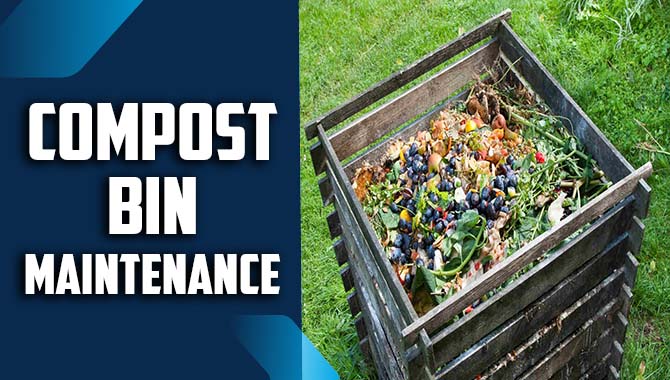
What Is A Compost Bin?
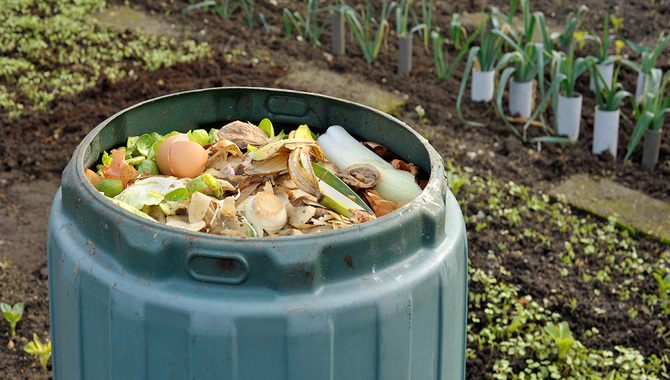
People can turn food scraps, leaves, and grass clippings into compost using compost bins. These materials decompose naturally in composting, resulting in nutrient-rich soil that people can use for gardening and farming. Compost bins come in various sizes and styles. Using a compost bin is an environmentally-friendly way to reduce waste and create a natural fertilizer for plants.
Importance Of Regular Maintenance For Compost Bins
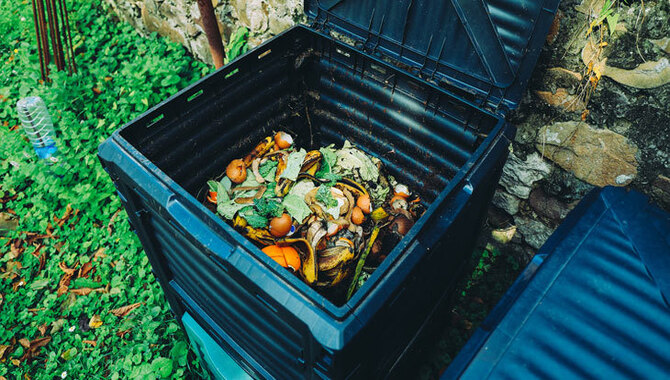
Regular maintenance is crucial for ensuring the proper functioning of compost bins. The composting process may slow down or even stop without regular maintenance. The buildup of excess moisture, lack of oxygen, or the presence of pests can all contribute to an unhealthy compost bin.
By maintaining your compost bin regularly, you can produce high-quality compost to nourish your garden and reduce the amount of waste going to landfills.
Top 10 Tips About Compost Bin Maintenance
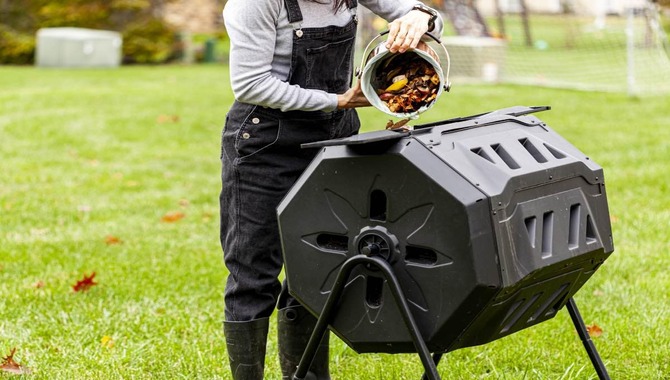
Regularly turning and aerating your compost is important to ensure it decomposes properly. Keeping your compost bin moist but not too wet is also essential. By correctly maintaining your compost bin, you can reduce waste, create nutrient-rich soil for your plants, and contribute to a more sustainable environment. Here are some tips for Compost bin maintenance:
- Keep your compost bin in a convenient location that is easy to access but not too close to your home.
- Add a balance of “brown” and “green” materials to your compost bin to maintain a healthy balance of carbon and nitrogen.
- Chop or shred more extensive materials to help them decompose faster.
- Keep the compost moist but not too wet. Aim for a consistency similar to a damp sponge.
- Turn your compost pile regularly to aerate it and speed up the decomposition process.
- Cover your compost bin with a lid or tarp to keep excess moisture out and maintain a consistent temperature.
- Avoid adding meat, dairy, or oily foods to your compost, as they can attract pests and slow the composting process.
- Use a compost thermometer to ensure your pile reaches the appropriate temperature for decomposition.
- Look for any signs of pests or odours, and adjust as needed to keep your compost healthy.
- Harvest your finished compost when it is dark, crumbly, and earthy-smelling, typically after 3-6 months.
Maintenance Cost
bin maintenance costs can vary depending on the type of bin, its size, and the materials used. Generally, an actual compost bin can be maintained for minimal cost. Occasionally, You may need to add some fresh compost material or turn the pile to ensure proper decomposition.
However, more advanced composting systems may require additional maintenance costs, such as electricity for a tumbler or regular replacement of carbon filters for a worm bin. It’s essential to consider these factors when choosing a composting system and budget accordingly for maintenance costs.
Adding Suitable Materials To Your Compost Bin
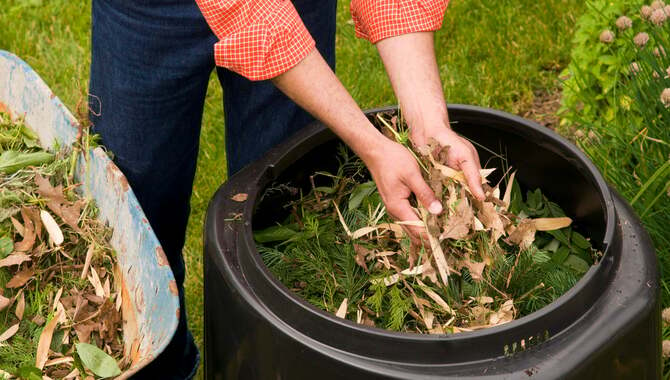
Adding suitable materials to your compost bin is critical to creating healthy and productive compost. The ideal compost contains brown and green materials. Brown materials provide carbon, while green materials provide nitrogen. Some brown materials include dried leaves, twigs, and shredded paper.
Green materials include fruit and vegetable scraps, grass clippings, and coffee grounds. It’s essential to avoid adding meat, dairy, and oily foods to your compost as they can attract pests and slow down the composting process. Suitable materials can create a nutrient-rich compost perfect for your garden or plants.
Potential Problems With Bin Maintenance
Several potential problems can arise when maintaining a compost bin. Composing organic matter is an odour-produce issue, which can become unpleasant if the container is not properly aerated.
Another problem is attracting pests, such as flies and rodents. Compost with a layer of soil or use a bin with a tight lid to prevent it. Additionally, if the compost becomes too dry or wet, Adding water or more organic matter may need to be adjusted as it may not break down properly. Finally, improper placement of the compost bin, such as being too close to a dwelling or on uneven ground, can also cause issues with maintenance.
Troubleshooting Common Composting Problems
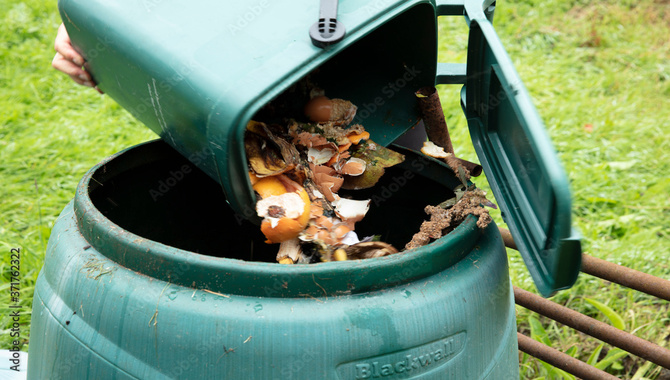
Composting is a great way to reduce waste and produce nutrient-rich soil for your garden. However, sometimes problems can arise that hinder the composting process. A common problem is a lack of heat and moisture or nitrogen-rich material. Adding more water and green materials like grass clippings or food scraps can help heat the compost pile.
Another issue is a foul odour, which can be caused by too much moisture or anaerobic conditions. Turning the pile more frequently and adding dry materials like leaves or paper can help alleviate this problem. Finally, if the compost is not breaking down fast enough, it may be due to a lack of oxygen or too much carbon-rich materials. Adding more air by turning the pile and adding more green materials can help speed up the composting process.
Things That Don’t Break Down In Compost Bins
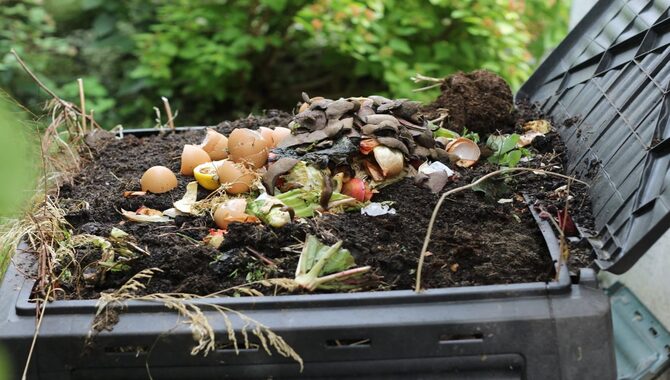
Composting is a great way to reduce waste and create nutrient-rich soil for gardening. However, not everything can be thrown into a compost bin. Some materials take a long time to break down or can contaminate the compost. Here are some examples of materials to keep out of the compost bin:
Plastic– Plastic does not break down and can take hundreds of years to decompose. It can also release harmful chemicals into the soil.
Metal– Metal does not break down and can rust, contaminating the compost.
Glass– Glass does not decompose and can break into sharp shards, posing a safety hazard.
Meat and Dairy– Meat and dairy products can attract pests and emit unpleasant odours. They also take a long time to decompose and can produce harmful bacteria.
Oily Foods– Oily or greasy foods can attract pests and slow composting. By keeping these items out of your compost bin, you can ensure that your compost stays healthy and free of contaminants.
Cleaning Your Compost Bin
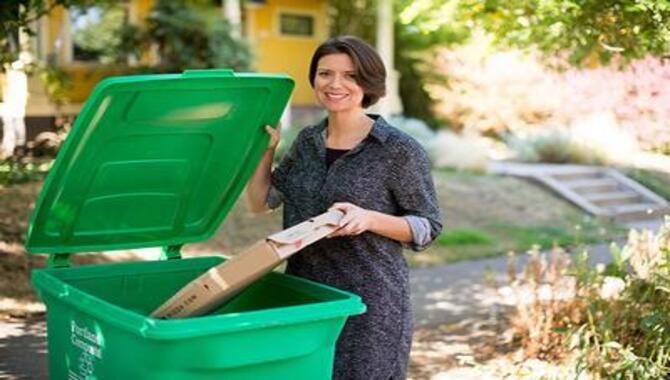
Cleaning your compost bin is essential to ensure its effectiveness and longevity. Start by emptying the bin’s contents onto a tarp or wheelbarrow. Remove any large debris and set it aside for disposal. Then, use a stiff-bristled brush to thoroughly scrub the inside of the bin thoroughly, paying particular attention to any stubborn spots.
Rinse the container with a hose and let it dry completely before adding fresh compost. It’s recommended to clean your compost bin at least once every six months to prevent buildup and keep it functioning correctly.
Dealing With Pests In Your Compost Bin
Pests in your compost bin can be a nuisance, but there are ways to deal with them. First, ensure your compost is balanced and not too wet or dry, which can attract pests. You can also add a layer of dry leaves or shredded newspaper on top of the compost to discourage pests from digging in.
If you still have pests, consider using a mesh cover or adding a layer of wire mesh to the bottom of your bin to prevent them from getting in. Finally, avoid adding meat, dairy, or oily foods to your compost, as these can attract pests and slow the composting process.
Long-Term Maintenance For Your Compost Bin
Long-term maintenance for your compost bin is essential to ensure it continues working effectively. A critical aspect of care is regularly checking the moisture level of the compost. If it’s too dry, add water; if it’s too wet, add dry materials like leaves or shredded paper.
Another critical aspect is to turn the compost frequently to provide aeration and promote decomposition. Add a balanced mix of green and brown materials to your compost. Finally, cover your compost bin to protect it from rain and pests. By following these simple steps, your compost bin will continue to produce nutrient-rich soil for your garden for years.
Conclusion
Proper compost bin maintenance is crucial for the success and longevity of the composting process. Bin maintenance involves regular care, inspection, and upkeep of the composting system to ensure its functionality and efficiency. The importance of bin maintenance lies in its ability to promote optimal decomposition, prevent unpleasant odours, manage moisture levels, and deter pests.
Individuals can create a healthy and thriving composting environment by giving attention to key maintenance tasks such as turning the compost, monitoring temperature and moisture, and removing any potential barriers to decomposition.
Specificity in bin maintenance allows for targeted actions to address specific issues that may arise, fostering a well-balanced and productive composting system. Through consistent maintenance practices, individuals can harness the full potential of their compost bin, producing nutrient-rich compost for gardening and contributing to sustainable waste management.
FAQs
[rank_math_rich_snippet id=”s-a9631a9a-0321-41d9-8fdf-5252d7f0aecd”]

I am passionate about home engineering. I specialize in designing, installing, and maintaining heating, ventilation, and air conditioning systems. My goal is to help people stay comfortable in their homes all year long.
